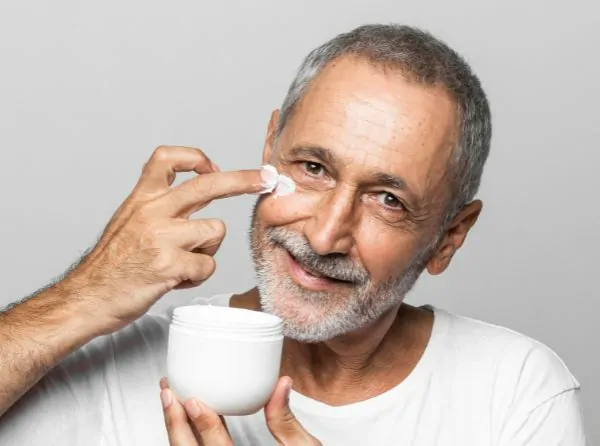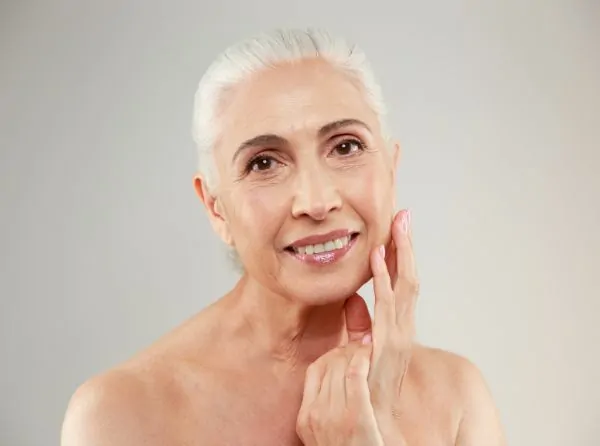Winter and skincare: Winter and skincare: a unique challenge – The arrival of winter brings with it a unique set of challenges for our skin (normally dry in winter). Unlike the warmer months, winter’s cold, dry air can strip moisture from the skin, leading to dryness, irritation, and a dull appearance. This season demands a different skincare routine, one that focuses on hydration and protection. As temperatures drop, it becomes essential to adapt our skincare strategies to meet these specific challenges, ensuring our skin remains healthy and resilient throughout the colder months.
Hydrate yout skin from within
Internal hydration plays a vital role in winter skin care, as the cold and dry external conditions can lead to significant skin dehydration. Understanding the science behind skin hydration is key to effectively maintaining it. The first and most essential step in this process is ensuring adequate water intake. This fundamental practice helps counteract the drying effects of the winter environment on your skin.

THE SCIENCE OF SKIN HYDRATATION
Our skin, the body’s largest organ, is impacted by internal hydration levels. The low humidity of winter can quickly deplete moisture, leading to dryness and weakened skin barrier function.
WATER INTAKE: FOUNDATION OF HYDRATION
The simplest yet most effective way to hydrate your skin from within is by maintaining adequate water intake. The general guideline is to drink at least eight glasses of water daily, but this can vary based on individual needs and lifestyle factors. Remember, if you feel thirsty, your skin is already dehydrated.
THE ROLE OF SUPPLEMENTS
While a balanced diet is important, supplements like collagen can provide extra benefits. Collagen, essential for skin elasticity, supports skin structure. However, as the effectiveness of oral collagen supplements is still being researched, it’s important to consult a healthcare professional before starting any new supplement regimen.
BE CAUTIOUS WITH OVER-EXFOLIATION
Exfoliation is a key step for some in their skincare routine, as it plays a role in removing dead skin cells, promoting cell turnover, and rejuvenating the skin’s surface. However, during the winter, the risks of over-exfoliation become more pronounced. Over-exfoliating can compromise the skin’s natural protective barrier, stripping away essential oils and moisture. This can lead to increased dryness, irritation, and sensitivity, which are particularly undesirable in the already harsh winter environment.
Understanding the skin’s barrier function is essential. The skin’s barrier, primarily composed of cells and lipids, serves to protect against environmental stressors and prevent moisture loss. Excessive exfoliation can disrupt this barrier, exposing the skin to irritants and causing moisture loss. In winter, when the air is drier, this effect is amplified, making the skin more susceptible to damage.
To maintain healthy skin during the winter, it is advisable to limit exfoliation to avoid compromising the skin’s natural barrier. The choice of exfoliator is equally important. Gentle, hydrating exfoliators are preferable to harsh, abrasive ones.

USE FACE MASKS IN MODERATION
Face masks are valuable for winter skin care, providing necessary hydration against the dry weather. It’s important to use them wisely, avoiding overuse or masks with harsh ingredients that can lead to skin irritation and imbalance. Select masks enriched with hydrating ingredients like ceramides and natural oils, and steer clear of those with high concentrations of alcohols or fragrances, particularly for sensitive skin.
Applying a hydrating mask once or twice a week is sufficient for maintaining moisture and supporting the skin’s barrier, followed by a moisturizer to seal in the hydration. This balanced approach ensures your skin stays hydrated and healthy through the winter months.
CONSIDER INJECTABLE COLLAGEN STIMULATORS FOR HYDRATION
Collagen, crucial for maintaining skin elasticity and hydration, naturally decreases as we age, a process that can be accentuated during the winter months. Significant and targeted results can be achieved through professional treatments like collagen fillers.
Collagen stimulators offer a non-invasive solution to effectively restore volume in areas of the face where loss typically occurs due to aging. Unlike typical dermal fillers , the hyaluronic acid in them provides hydration rather than volume. This means they hydrate the skin without volumising the face, preventing laxity and lending the complexion a healthy, dewy-looking texture.
CONCLUSION
Balancing your skin care in winter is essential. Hydrating internally, cautious exfoliation, judicious use of masks, and considering professional treatments like collagen stimulators contribute to healthy, radiant winter skin. The best winter moisturizer is one that suits your skin type and addresses specific needs.
Adopting these tips into your winter skin care routine can keep your skin vibrant and healthy throughout the season. For personalized advice, consult a skincare professional to determine the best winter skin treatments for you.



